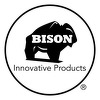
Landscape Architecture - Florida Department of Business and Professional Regulation (On- Demand)
The Board of Landscape Architecture operates under the jurisdiction of the Florida Department of Business and Professional Regulation and is responsible for licensing and regulating landscape architects.
https://redirect.aecdaily.com/s18122/myfloridalicense.com/DBPR/landscape-architecture/
Displaying 1 - 25 of 102 results.
FIRST [1-25] [26-50] [51-75] [76-100] [101-102] NEXT LAST SHOW ALL

 This course provides an overview of growth trends in package delivery and information necessary to recommend and specify package management solutions for businesses, universities, multifamily residential, and single-family residential homeowners. In addition, this course summarizes the different types of package management equipment, recommended applications, detailed information on current equipment standards, and accessibility considerations used to improve package management and user convenience.
This course provides an overview of growth trends in package delivery and information necessary to recommend and specify package management solutions for businesses, universities, multifamily residential, and single-family residential homeowners. In addition, this course summarizes the different types of package management equipment, recommended applications, detailed information on current equipment standards, and accessibility considerations used to improve package management and user convenience.

https://redirect.aecdaily.com/s4459/www.aecdaily.com/course/920201
This course contains accessible design information. See the course details page for more information.
This course is part of one or more "Course Collections". Click here to view the details.
This course is ONLINE: SELF-PACED. Experience it on your own schedule, at your convenience.

 Architectural precast concrete products are versatile, sustainable, affordable, and resilient. This course examines the advantages of building with them and discusses the production process, unique characteristics, and installation of architectural precast concrete’s three main product groups.
Architectural precast concrete products are versatile, sustainable, affordable, and resilient. This course examines the advantages of building with them and discusses the production process, unique characteristics, and installation of architectural precast concrete’s three main product groups.

https://redirect.aecdaily.com/s1633/www.aecdaily.com/course/986550
This course contains sustainable design information. See the course details page for more information.
This course is ONLINE: SELF-PACED. Experience it on your own schedule, at your convenience.

 Stairs are often a prominent feature or even the focal point of an architectural design project and play a vital role in creating an aesthetically pleasing interior atmosphere, or an exterior welcoming point to a residential, commercial, or industrial building. This course provides an overview of the many benefits of installing precast concrete stair treads and landings, how to detail and specify them, and how to address related building code, design, and construction requirements.
Stairs are often a prominent feature or even the focal point of an architectural design project and play a vital role in creating an aesthetically pleasing interior atmosphere, or an exterior welcoming point to a residential, commercial, or industrial building. This course provides an overview of the many benefits of installing precast concrete stair treads and landings, how to detail and specify them, and how to address related building code, design, and construction requirements.

https://redirect.aecdaily.com/s456403/www.aecdaily.com/course/835024
This course contains sustainable design information. See the course details page for more information.
This course is part of one or more "Course Collections". Click here to view the details.
This course is ONLINE: SELF-PACED. Experience it on your own schedule, at your convenience.

 Outdoor decks are commonly desired by homeowners and commercial property owners for both new and existing properties. Wood has long been the structural choice for outdoor deck materials. However, wood has disadvantages that can be mitigated with steel deck framing structural construction. In this course, we will discover that light-gauge steel (LGS) is lighter in weight than structural wood, is less susceptible to deterioration due to the elements and pests, requires less maintenance over time, is a sustainable material, and offers unparalleled safety features for dead loads, live loads, and environmental loads such as snow, earthquakes, and wind. Steel deck framing is quick to erect and provides for longer spans than wood of similar cross-sectional size. Structural materials can be easily lifted, and waste is reduced.
Outdoor decks are commonly desired by homeowners and commercial property owners for both new and existing properties. Wood has long been the structural choice for outdoor deck materials. However, wood has disadvantages that can be mitigated with steel deck framing structural construction. In this course, we will discover that light-gauge steel (LGS) is lighter in weight than structural wood, is less susceptible to deterioration due to the elements and pests, requires less maintenance over time, is a sustainable material, and offers unparalleled safety features for dead loads, live loads, and environmental loads such as snow, earthquakes, and wind. Steel deck framing is quick to erect and provides for longer spans than wood of similar cross-sectional size. Structural materials can be easily lifted, and waste is reduced.

https://redirect.aecdaily.com/s555712/www.aecdaily.com/course/972529
This course is ONLINE: SELF-PACED. Experience it on your own schedule, at your convenience.

 Considering gate hardware early in the design process enhances the aesthetics and functionality of perimeter security. Gate hardware balances durability, security, and ease-of-use without detracting from the design. This course examines latches, plain pivot and self-closing hinges, closers and accessories for swing gates, and wheels for sliding gates; it also offers guidance on specification and installation.
Considering gate hardware early in the design process enhances the aesthetics and functionality of perimeter security. Gate hardware balances durability, security, and ease-of-use without detracting from the design. This course examines latches, plain pivot and self-closing hinges, closers and accessories for swing gates, and wheels for sliding gates; it also offers guidance on specification and installation.

https://redirect.aecdaily.com/s4479/www.aecdaily.com/course/930671
This course contains accessible design information. See the course details page for more information.
This course is part of one or more "Course Collections". Click here to view the details.
This course is ONLINE: SELF-PACED. Experience it on your own schedule, at your convenience.

 Redwood offers warmth, character, durability, and strength in products from sustainably managed and harvested forests. This course provides insights into forestry practices and the environmental benefits of redwood lumber, and compares redwood with other common decking materials. Details are presented on how to differentiate and specify grades of redwood; finishing options and methods are also discussed. The course concludes with examples of applications that showcase the unique beauty and attributes of redwood.
Redwood offers warmth, character, durability, and strength in products from sustainably managed and harvested forests. This course provides insights into forestry practices and the environmental benefits of redwood lumber, and compares redwood with other common decking materials. Details are presented on how to differentiate and specify grades of redwood; finishing options and methods are also discussed. The course concludes with examples of applications that showcase the unique beauty and attributes of redwood.

https://redirect.aecdaily.com/s632921/www.aecdaily.com/course/835833
This course contains sustainable design information. See the course details page for more information.
This course is part of one or more "Course Collections". Click here to view the details.
This course is ONLINE: SELF-PACED. Experience it on your own schedule, at your convenience.

 Movable pool and spa floor technology enables an entirely flexible, multifunctional living and recreational space to complement any architectural vision. Presented here are types of movable pool floors, pool floor technology, options and amenities, and safety and sustainability performance considerations.
Movable pool and spa floor technology enables an entirely flexible, multifunctional living and recreational space to complement any architectural vision. Presented here are types of movable pool floors, pool floor technology, options and amenities, and safety and sustainability performance considerations.

https://redirect.aecdaily.com/s879124/www.aecdaily.com/course/912416
This course contains sustainable design information. See the course details page for more information.
This course contains accessible design information. See the course details page for more information.
This course is part of one or more "Course Collections". Click here to view the details.
This course is ONLINE: SELF-PACED. Experience it on your own schedule, at your convenience.

 Assesses the urban environmental issues of stormwater runoff and heat islands and describes how their damaging impacts can be mitigated by blue, white, and green roofs. The considerations and additional benefits of each roof type are also discussed.
Assesses the urban environmental issues of stormwater runoff and heat islands and describes how their damaging impacts can be mitigated by blue, white, and green roofs. The considerations and additional benefits of each roof type are also discussed.

https://redirect.aecdaily.com/s661094/www.aecdaily.com/course/686311
This course contains sustainable design information. See the course details page for more information.
This course is ONLINE: SELF-PACED. Experience it on your own schedule, at your convenience.

 As impervious land cover increases, so does the need for stormwater management. Concrete grid pavements provide increased infiltration rates, positively affecting runoff flow while decreasing erosion. This course introduces the range of grid pavement and erosion control applications and provides design and construction guidelines. Environmental performance is defined via conclusions from several research projects. Concrete grid pavements require minimal maintenance when properly designed and installed in appropriate applications. This course also includes an overview of how concrete grid paving units can be used to meet a number of LEED® v4.1 BD+C credit requirements.
As impervious land cover increases, so does the need for stormwater management. Concrete grid pavements provide increased infiltration rates, positively affecting runoff flow while decreasing erosion. This course introduces the range of grid pavement and erosion control applications and provides design and construction guidelines. Environmental performance is defined via conclusions from several research projects. Concrete grid pavements require minimal maintenance when properly designed and installed in appropriate applications. This course also includes an overview of how concrete grid paving units can be used to meet a number of LEED® v4.1 BD+C credit requirements.

https://redirect.aecdaily.com/s7816/www.aecdaily.com/course/991693
This course contains sustainable design information. See the course details page for more information.
This course is ONLINE: SELF-PACED. Experience it on your own schedule, at your convenience.

 Due to advancements in architectural decorative glass technology, the number of design options available to help designers and architects achieve the specific aesthetics and performance requirements they desire has dramatically increased. This course provides a review of architectural decorative glass including product options, applications, features, and specification considerations. Also discussed is how decorative glass can contribute to sustainable design and LEED® initiatives.
Due to advancements in architectural decorative glass technology, the number of design options available to help designers and architects achieve the specific aesthetics and performance requirements they desire has dramatically increased. This course provides a review of architectural decorative glass including product options, applications, features, and specification considerations. Also discussed is how decorative glass can contribute to sustainable design and LEED® initiatives.

https://redirect.aecdaily.com/s661112/www.aecdaily.com/course/880724
This course contains sustainable design information. See the course details page for more information.
This course is part of one or more "Course Collections". Click here to view the details.
This course is ONLINE: SELF-PACED. Experience it on your own schedule, at your convenience.

 Synthetic (artificial) grass, specifically designed for use with dogs, is a cost-effective solution that offers a clean, safe, and aesthetically pleasing environment for dogs. Presented here are the health, safety, performance, and cost benefits of installing synthetic grass specifically designed for dogs; its suitable applications; design considerations; installation factors; and maintenance guidelines.
Synthetic (artificial) grass, specifically designed for use with dogs, is a cost-effective solution that offers a clean, safe, and aesthetically pleasing environment for dogs. Presented here are the health, safety, performance, and cost benefits of installing synthetic grass specifically designed for dogs; its suitable applications; design considerations; installation factors; and maintenance guidelines.

https://redirect.aecdaily.com/s796052/www.aecdaily.com/course/823653
This course contains sustainable design information. See the course details page for more information.
This course is ONLINE: SELF-PACED. Experience it on your own schedule, at your convenience.

 When installing precast concrete, it is important to plan for and know how to overcome numerous site challenges. If not dealt with properly, these challenges can prevent a project from passing inspection and can result in installation problems, moving and cracking of pavers, and safety hazards to pedestrians. This course addresses the most frequently asked questions regarding on-site paving issues to facilitate a successful installation for a variety of applications.
When installing precast concrete, it is important to plan for and know how to overcome numerous site challenges. If not dealt with properly, these challenges can prevent a project from passing inspection and can result in installation problems, moving and cracking of pavers, and safety hazards to pedestrians. This course addresses the most frequently asked questions regarding on-site paving issues to facilitate a successful installation for a variety of applications.

https://redirect.aecdaily.com/s456403/www.aecdaily.com/course/966262
This course is ONLINE: SELF-PACED. Experience it on your own schedule, at your convenience.

 Birds, bird droppings, and nesting materials can detract from buildings' architectural features; more importantly, they can negatively impact the environment by creating health and safety risks. Eliminating a bird problem requires a strategic combination of preventive measures and proven bird control products. This course explores the characteristics of common birds, bird problem assessment, and the solutions designed to deter the roosting and nesting of pest birds.
Birds, bird droppings, and nesting materials can detract from buildings' architectural features; more importantly, they can negatively impact the environment by creating health and safety risks. Eliminating a bird problem requires a strategic combination of preventive measures and proven bird control products. This course explores the characteristics of common birds, bird problem assessment, and the solutions designed to deter the roosting and nesting of pest birds.

https://redirect.aecdaily.com/s2451/www.aecdaily.com/course/923199
This course is ONLINE: SELF-PACED. Experience it on your own schedule, at your convenience.

 Commercial planters add interest to both commercial and residential spaces. An understanding of materials and options available when specifying planters is an essential tool for both designers and architects. These topics are addressed in this course along with discussions on the applications of commercial planters and the benefits they offer in the design of indoor and outdoor spaces.
Commercial planters add interest to both commercial and residential spaces. An understanding of materials and options available when specifying planters is an essential tool for both designers and architects. These topics are addressed in this course along with discussions on the applications of commercial planters and the benefits they offer in the design of indoor and outdoor spaces.

https://redirect.aecdaily.com/s781284/www.aecdaily.com/course/841985
This course contains sustainable design information. See the course details page for more information.
This course is part of one or more "Course Collections". Click here to view the details.
This course is ONLINE: SELF-PACED. Experience it on your own schedule, at your convenience.

 In applications where wood may be exposed to moisture, insects, or fungal organisms, preservative-treated wood can ensure a project’s durability. This course reviews: the manufacturing process for pressure-treated wood; types of preservative treatments and the required levels of retention as dictated by the end-use application, desired service life, and exposure conditions; American Wood Protection Association (AWPA) Use Category standards; current issues concerning preserved wood in residential and commercial construction; and Best Management Practices (BMPs) for aquatic uses.
In applications where wood may be exposed to moisture, insects, or fungal organisms, preservative-treated wood can ensure a project’s durability. This course reviews: the manufacturing process for pressure-treated wood; types of preservative treatments and the required levels of retention as dictated by the end-use application, desired service life, and exposure conditions; American Wood Protection Association (AWPA) Use Category standards; current issues concerning preserved wood in residential and commercial construction; and Best Management Practices (BMPs) for aquatic uses.

https://redirect.aecdaily.com/s775747/www.aecdaily.com/course/794696
This course contains sustainable design information. See the course details page for more information.
This course is part of one or more "Course Collections". Click here to view the details.
This course is ONLINE: SELF-PACED. Experience it on your own schedule, at your convenience.

 Paving products comprise an important part of both the functionality and aesthetic of exterior spaces, including urban plazas, streetscapes, walkways, patios, and amenity spaces. This course provides an overview of architectural paving and segmental retaining walls (SRWs) as two primary applications of hardscaping products in these spaces. The course introduces architectural paving and its components, manufacturing, and products and then focuses on the benefits, construction, and available types of SRWs. Case study examples of both architectural paving and SRWs are provided to engage and inspire learners as to the applications, functionality, and aesthetic possibilities of hardscaping products.
Paving products comprise an important part of both the functionality and aesthetic of exterior spaces, including urban plazas, streetscapes, walkways, patios, and amenity spaces. This course provides an overview of architectural paving and segmental retaining walls (SRWs) as two primary applications of hardscaping products in these spaces. The course introduces architectural paving and its components, manufacturing, and products and then focuses on the benefits, construction, and available types of SRWs. Case study examples of both architectural paving and SRWs are provided to engage and inspire learners as to the applications, functionality, and aesthetic possibilities of hardscaping products.

https://redirect.aecdaily.com/s14751/www.aecdaily.com/course/957549
This course is ONLINE: SELF-PACED. Experience it on your own schedule, at your convenience.
![]()
![]() Outdoor shelters not only provide protection from the elements but also add visual interest to outdoor public spaces, and advances in shelter design are changing the way the recreational landscape is defined. This course looks at current capabilities in shelter design, compares pre-engineered to site-built shelters, and focuses on the advantages of using a manufacturer who offers design and engineering services. Sustainable aspects of shelter design are also discussed.
Outdoor shelters not only provide protection from the elements but also add visual interest to outdoor public spaces, and advances in shelter design are changing the way the recreational landscape is defined. This course looks at current capabilities in shelter design, compares pre-engineered to site-built shelters, and focuses on the advantages of using a manufacturer who offers design and engineering services. Sustainable aspects of shelter design are also discussed.

https://redirect.aecdaily.com/s834268/www.aecdaily.com/course/859869
This course contains sustainable design information. See the course details page for more information.
This course is ONLINE: SELF-PACED. Experience it on your own schedule, at your convenience.

 Incorporating nature into the built environment through biophilic design increases occupant well-being, productivity, and health and is an integral component of an ecologically healthy and sustainable community. Presented here is an overview of biophilic design, its relationship to sustainability, and its positive human, environmental, and economic outcomes. Case studies demonstrate how rooftop deck systems can contribute to biophilic and sustainable design objectives.
Incorporating nature into the built environment through biophilic design increases occupant well-being, productivity, and health and is an integral component of an ecologically healthy and sustainable community. Presented here is an overview of biophilic design, its relationship to sustainability, and its positive human, environmental, and economic outcomes. Case studies demonstrate how rooftop deck systems can contribute to biophilic and sustainable design objectives.

https://redirect.aecdaily.com/s17339/www.aecdaily.com/course/979125
This course contains sustainable design information. See the course details page for more information.
This course is ONLINE: SELF-PACED. Experience it on your own schedule, at your convenience.

 Bamboo is a versatile building material that brings warmth and character to indoor applications such as flooring, furniture, and wall and ceiling panels; an innovative process also allows bamboo to be used outdoors in decks, soffits, and siding. This course reviews the material technologies that make bamboo products with reduced environmental impacts and better performance than traditional materials and discusses their potential to meet requirements of the LEED® v4.1 Building Design and Construction and Interior Design and Construction rating systems and the WELL Building Standard™ version 2.
Bamboo is a versatile building material that brings warmth and character to indoor applications such as flooring, furniture, and wall and ceiling panels; an innovative process also allows bamboo to be used outdoors in decks, soffits, and siding. This course reviews the material technologies that make bamboo products with reduced environmental impacts and better performance than traditional materials and discusses their potential to meet requirements of the LEED® v4.1 Building Design and Construction and Interior Design and Construction rating systems and the WELL Building Standard™ version 2.

https://redirect.aecdaily.com/s1036619/www.aecdaily.com/course/1065768
This course contains sustainable design information. See the course details page for more information.
This course is part of one or more "Course Collections". Click here to view the details.
This course is ONLINE: SELF-PACED. Experience it on your own schedule, at your convenience.

 Retaining walls resist the lateral displacement of soil or other materials, and their long-term performance is dependent on proper design and construction. This course focuses on the segmental retaining wall (SRW), a type of mechanically stabilized earth (MSE) wall. Presented here are SRW types and components, advantages over other retaining wall systems, design considerations, and construction tolerances, as well as reasons that SRWs fail.
Retaining walls resist the lateral displacement of soil or other materials, and their long-term performance is dependent on proper design and construction. This course focuses on the segmental retaining wall (SRW), a type of mechanically stabilized earth (MSE) wall. Presented here are SRW types and components, advantages over other retaining wall systems, design considerations, and construction tolerances, as well as reasons that SRWs fail.

https://redirect.aecdaily.com/s149579/www.aecdaily.com/course/982567
This course is ONLINE: SELF-PACED. Experience it on your own schedule, at your convenience.

 While all pavements require maintenance and eventually rehabilitation, the modular nature of interlocking concrete pavement (ICP) requires maintenance procedures distinctly different from those for monolithic pavements. This course provides information on surface cleaning, sealers, sealing procedures, and joint sand stabilization. Repair procedures for the subgrade, base, bedding, and paver layers are also provided. Snow management techniques are addressed, and the course concludes with an in-depth look at pavement management using ASTM procedures for establishing a pavement condition index.
While all pavements require maintenance and eventually rehabilitation, the modular nature of interlocking concrete pavement (ICP) requires maintenance procedures distinctly different from those for monolithic pavements. This course provides information on surface cleaning, sealers, sealing procedures, and joint sand stabilization. Repair procedures for the subgrade, base, bedding, and paver layers are also provided. Snow management techniques are addressed, and the course concludes with an in-depth look at pavement management using ASTM procedures for establishing a pavement condition index.

https://redirect.aecdaily.com/s7816/www.aecdaily.com/course/990200
This course is ONLINE: SELF-PACED. Experience it on your own schedule, at your convenience.

 Changing climate and land use patterns have necessitated a greater focus on stormwater management. The trench drain industry has developed in a rather fragmented way over the decades, with each manufacturer using their own unique reference points for dimension, load rating, and other criteria. The purpose of this course is to clear up the resulting confusion and provide best practices and a real-world understanding of the multiple variables at play on the project level.
Changing climate and land use patterns have necessitated a greater focus on stormwater management. The trench drain industry has developed in a rather fragmented way over the decades, with each manufacturer using their own unique reference points for dimension, load rating, and other criteria. The purpose of this course is to clear up the resulting confusion and provide best practices and a real-world understanding of the multiple variables at play on the project level.

https://redirect.aecdaily.com/s921773/www.aecdaily.com/course/1009739
This course contains sustainable design information. See the course details page for more information.
This course contains accessible design information. See the course details page for more information.
This course is ONLINE: SELF-PACED. Experience it on your own schedule, at your convenience.

 Parks, recreational areas, and common rural and urban spaces can be essential relaxing oases. Pathways that navigate through these public spaces should be functional and durable and complement the natural environment. This course explores pathway materials and focuses on decomposed granite (DG) and natural aggregates. It discusses the types of pathways, their applications, installation, and maintenance, as well as their contribution to green design.
Parks, recreational areas, and common rural and urban spaces can be essential relaxing oases. Pathways that navigate through these public spaces should be functional and durable and complement the natural environment. This course explores pathway materials and focuses on decomposed granite (DG) and natural aggregates. It discusses the types of pathways, their applications, installation, and maintenance, as well as their contribution to green design.

https://redirect.aecdaily.com/s671504/www.aecdaily.com/course/935167
This course contains sustainable design information. See the course details page for more information.
This course contains accessible design information. See the course details page for more information.
This course is ONLINE: SELF-PACED. Experience it on your own schedule, at your convenience.

 The materials we use have a significant impact on the environment, our communities, and our health. Consequently, material transparency—wherein manufacturers disclose vital sustainability information about their products—is an increasingly necessary element of modern life. This course examines the tools and resources that are available for both manufacturers and the A&D community that effectively communicate transparency information and optimization of building products. Also reviewed are the benefits of the new-generation insulated metal panels (IMPs) designed to achieve a trusted range of health and wellness certifications.
The materials we use have a significant impact on the environment, our communities, and our health. Consequently, material transparency—wherein manufacturers disclose vital sustainability information about their products—is an increasingly necessary element of modern life. This course examines the tools and resources that are available for both manufacturers and the A&D community that effectively communicate transparency information and optimization of building products. Also reviewed are the benefits of the new-generation insulated metal panels (IMPs) designed to achieve a trusted range of health and wellness certifications.

https://redirect.aecdaily.com/s9727/www.aecdaily.com/course/845810
This course contains sustainable design information. See the course details page for more information.
This course is ONLINE: SELF-PACED. Experience it on your own schedule, at your convenience.

 Recycled rubber flooring is an environmentally responsible material that outlasts many types of traditional commercial flooring products when exposed to normal foot traffic stress. Interior and exterior recycled rubber surfacing products are explored in terms of their sustainable design benefits and applications. The program includes discussions on rubber manufacturing, postconsumer tires, and green building certification systems.
Recycled rubber flooring is an environmentally responsible material that outlasts many types of traditional commercial flooring products when exposed to normal foot traffic stress. Interior and exterior recycled rubber surfacing products are explored in terms of their sustainable design benefits and applications. The program includes discussions on rubber manufacturing, postconsumer tires, and green building certification systems.

https://redirect.aecdaily.com/s17445/www.aecdaily.com/course/540937
This course contains sustainable design information. See the course details page for more information.
This course is part of one or more "Course Collections". Click here to view the details.
This course is ONLINE: SELF-PACED. Experience it on your own schedule, at your convenience.